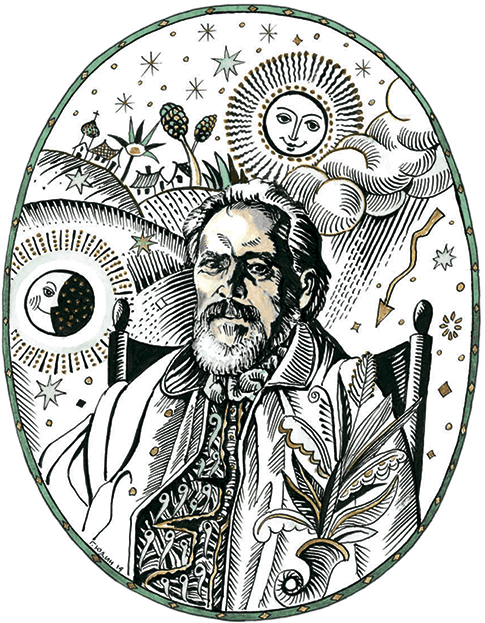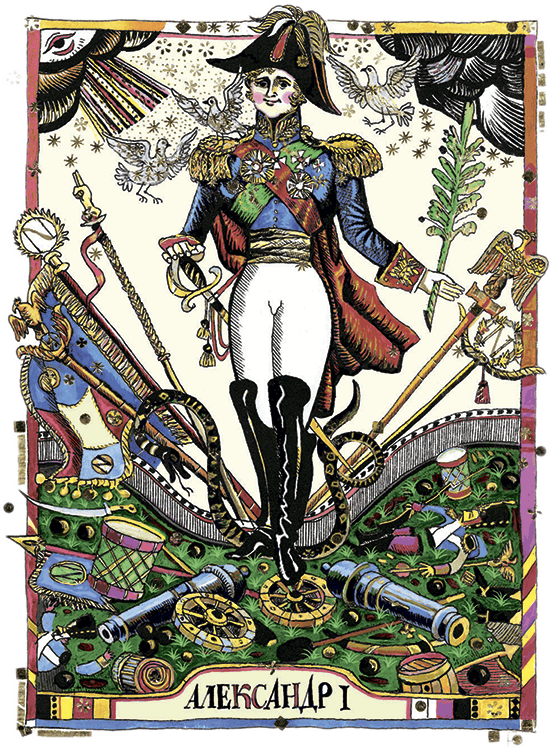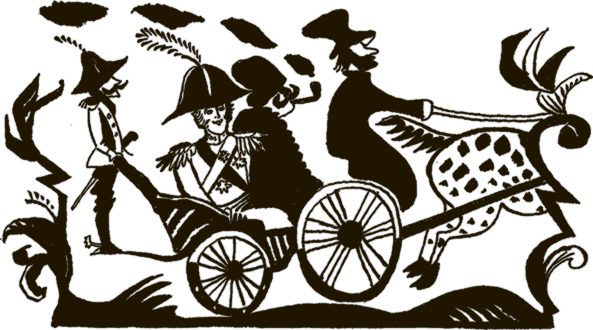© Yudin G. N., 2015
© RIPOL Classic Group of Companies LLC, 2015

Nikolai Semenovich Leskov was born in 1831 in the village of Gorokhovo, Oryol district. His father, Semyon Leskov, the son of a priest, graduated from a theological seminary, but served in the Oryol Criminal Chamber, was famous as a shrewd investigator and rose to the rank that gave hereditary nobility.
Nikolai Leskov was not distinguished by the same diligence and diligence as his father. He studied rather poorly and received a certificate of completion of only two classes. He was destined for a different fate. At first he served in the criminal chamber, like his father, then he moved to the Kyiv State Chamber, and finally, he worked at the enterprise of his uncle, the Englishman A. Ya. Scott.
Thanks to the last service, he visited many cities and villages of Russia and was able to get to know the life of his people better. This is what helped him to become, according to the literary critic D.P. Svyatopolk-Mirsky, “the most Russian of Russian writers.”
Perhaps the “most Russian” work of N. S. Leskov can be considered “The Tale of the Tula Oblique Lefty and the Steel Flea”, which was published in 1881. This story is an example of a Russian tale, the traditions of which were laid down by Gogol. She talks about a simple Tula gunsmith named Lefty. The emperor instructed him to make a tiny flea, so much so that it would be better than the one that the British made. The language of the story is full of folk etymology, puns, and behind the intricate plot lies a national-patriotic theme and one can feel the author's love for the simple Russian people, so skillful, but at the same time so reckless and unhappy. At the end of the story, Lefty makes a bet with the half-skipper, according to which they must outdrink each other, and subsequently dies in a godforsaken hospital, although before that he was famous throughout Russia.

Chapter first

When Emperor Alexander Pavlovich graduated from the Vienna Council, he wanted to travel around Europe and see miracles in different states. He traveled all over the countries and everywhere, through his affectionateness, he always had the most internecine conversations with all sorts of people, and everyone surprised him with something and wanted to bend to their side, but with him was the Don Cossack Platov, who did not like this declination and, missing his own housekeeping, all the sovereign beckoned home. And as soon as Platov notices that the sovereign is very interested in something foreign, then all the escorts are silent, and Platov will now say: so and so, and we have our own at home just as well, and he will take something away.
The English knew this, and before the sovereign's arrival, they invented various tricks to captivate him with his foreignness and distract him from the Russians, and in many cases they achieved this, especially in large meetings where Platov could not speak French completely: but he was little interested in this, because he was a married man and considered all French conversations to be trifles that are not worth imagination. And when the British began to call the sovereign to all their zeihaus, weapons and soap and saw factories, in order to show their superiority over us in all things and be famous for that, Platov said to himself:
- Well, here's the coven. So far, I have endured, but no longer. Whether I can speak or not, I won't betray my people.
And as soon as he said such a word to himself, the sovereign said to him:
- So and so, tomorrow you and I are going to look at their weapons cabinet of curiosities. There,” he says, “there are such natures of perfection that, as soon as you look, you will no longer argue that we Russians are no good with our significance.
Platov did not answer the sovereign, he only dipped his rough nose into a shaggy cloak, but came to his apartment, ordered the batman to bring a flask of Caucasian sour vodka from the cellar, rattled a good glass, prayed to God on the travel fold, covered himself with a cloak and snored so that in the whole house, the British, no one was allowed to sleep.
I thought: the morning is wiser than the night.
(10) (17) and from another pistole.
- Here, - they say, - what kind of productivity we have, - and they give a gun.
The emperor calmly looked at Mortimer's gun, because he has such in Tsarskoye Selo, and then they give him a pistol and say:
- This is a pistol of unknown, inimitable skill - our admiral at the robber chieftain in Candelabria pulled it out from his belt.
The sovereign looked at the pistol and could not get enough of it.
Went terribly.
“Ah, ah, ah,” he says, “how is it so ... how can it even be done so subtly!” - And he turns to Platov in Russian and says: - Now, if I had at least one such master in Russia, I would be very happy and proud of it, and I would immediately make that master noble.







